Parliamentary Buildings as Contested Spaces in Georgia and Ukraine: Power, Protest, and Legitimacy from the Soviet Era to Post-Independence
RUCARR seminar with Lika Kobeshavidze
 Lika Kobeshavidze is a Georgian political writer and analytical journalist specialising in EU policy and regional security in Europe. She is currently based in Lund, Sweden, pursuing advanced studies in European Studies.
Lika Kobeshavidze is a Georgian political writer and analytical journalist specialising in EU policy and regional security in Europe. She is currently based in Lund, Sweden, pursuing advanced studies in European Studies.
Time: 3 June, 15:15-17:00
Place: Seminar room 9th floor, Niagara or online https://mau-se.zoom.us/j/62245882436
Abstract:
This thesis explores the changing symbolic meanings of parliamentary buildings in Georgia and Ukraine. It focuses on how these spaces evolved from symbols of Soviet authority to main sites of resistance and political struggle through protest movements. The study offers a comparative analysis of Georgia and Ukraine through six key events that illustrate the symbolic transformation of the parliament buildings: the Georgian language protests and the Helsinki Group movement during the late Soviet era (1978–1988), the independence movements of 1989–1991 in both countries; the Rose Revolution in Georgia (2003), and the Orange Revolution in Ukraine (2004). The thesis uses Most Similar Systems Design (MSSD) to compare Ukraine and Georgia, two countries that share a common Soviet past and similar experiences with mass protests, although the state response and course of the events differ in detail. The analysis focuses on Henri Lefebvre’s idea of space as socially produced and Pierre Bourdieu’s theory of symbolic power, combined with discourse analysis methods by Norman Fairclough and Teun van Dijk. These theoretical frameworks allow a detailed analysis of how the discourse of the population, the language of protest, and the collective perception influence the change in the symbolic meaning of these spaces. By focusing on both the discursive and physical aspects of protests, the thesis emphasizes that these buildings are more than administrative centers and that during specific events, they change their symbolic meaning through the discourse and actions of the protesters.



 Prof. Oliver Reisner, Ilia State University, Tbilisi, visiting researcher at RUCARR, will give two seminars. Welcome to join us on campus or Zoom:
Prof. Oliver Reisner, Ilia State University, Tbilisi, visiting researcher at RUCARR, will give two seminars. Welcome to join us on campus or Zoom: On August 30 RUCARR hosted a meeting with members of the board of the Friends of Georgia, Society, SWEDEN. The expertise and experience of the members of the board in various fields of business, culture, politics and other perspectives of the Georgian society is quite unique. Among them Chairman Sven Holmström with expertise in Georgian agriculture, advisor to the board Per Eklund, former EU ambassador to Georgia and Armenia, professor Joakim Enwall (Uppsala University), one of the founding members and Georgian expert, Anuki Sturua, former secretary to the ambassador of Georgia to Sweden, Eric Jönsson, CEO to the Fulbright Commission in Stockholm and former honorary consul in Tbilisi, Bengt Carlström, chair of the Swedish-Georgian chamber of commerce, Ulrica Söderlind, Senior lecturer at Umeå University, gastronomic expert and the author of several books in the field, historian Ann Grönhammar and Suzanne Menzel Persson, with special inerest in travel in the Georgian highlands..
On August 30 RUCARR hosted a meeting with members of the board of the Friends of Georgia, Society, SWEDEN. The expertise and experience of the members of the board in various fields of business, culture, politics and other perspectives of the Georgian society is quite unique. Among them Chairman Sven Holmström with expertise in Georgian agriculture, advisor to the board Per Eklund, former EU ambassador to Georgia and Armenia, professor Joakim Enwall (Uppsala University), one of the founding members and Georgian expert, Anuki Sturua, former secretary to the ambassador of Georgia to Sweden, Eric Jönsson, CEO to the Fulbright Commission in Stockholm and former honorary consul in Tbilisi, Bengt Carlström, chair of the Swedish-Georgian chamber of commerce, Ulrica Söderlind, Senior lecturer at Umeå University, gastronomic expert and the author of several books in the field, historian Ann Grönhammar and Suzanne Menzel Persson, with special inerest in travel in the Georgian highlands..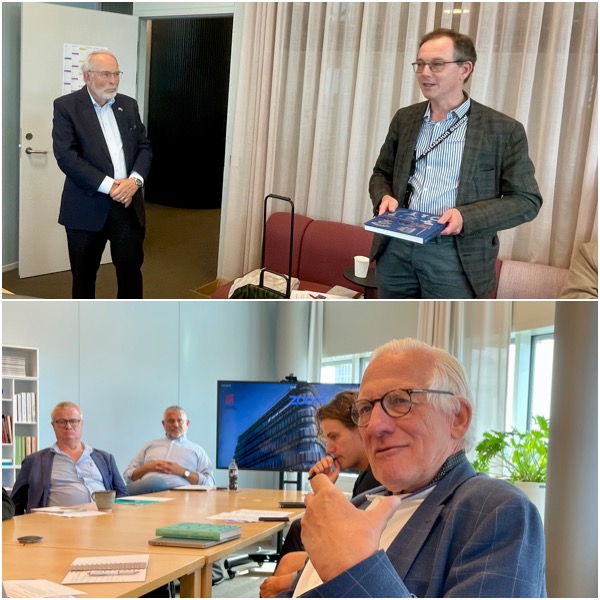 Program
Program Karina Vamling, Prof: Presentation of Caucasus Studies and RUCARR
Karina Vamling, Prof: Presentation of Caucasus Studies and RUCARR Dr Mariia Tyshchenko: “Empowering Civil Society in Eastern Partnership Countries”
Dr Mariia Tyshchenko: “Empowering Civil Society in Eastern Partnership Countries” Bio
Bio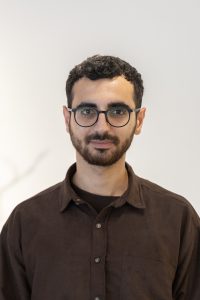 Bio
Bio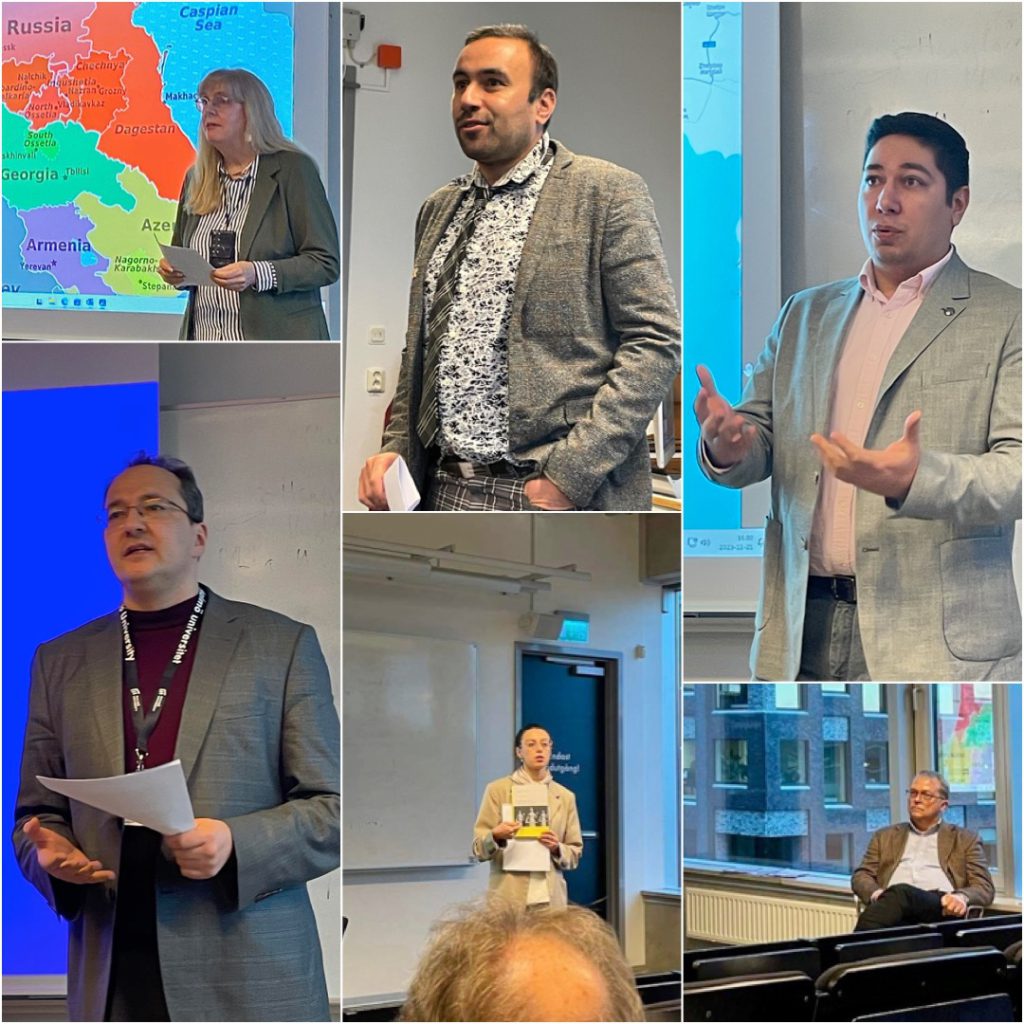
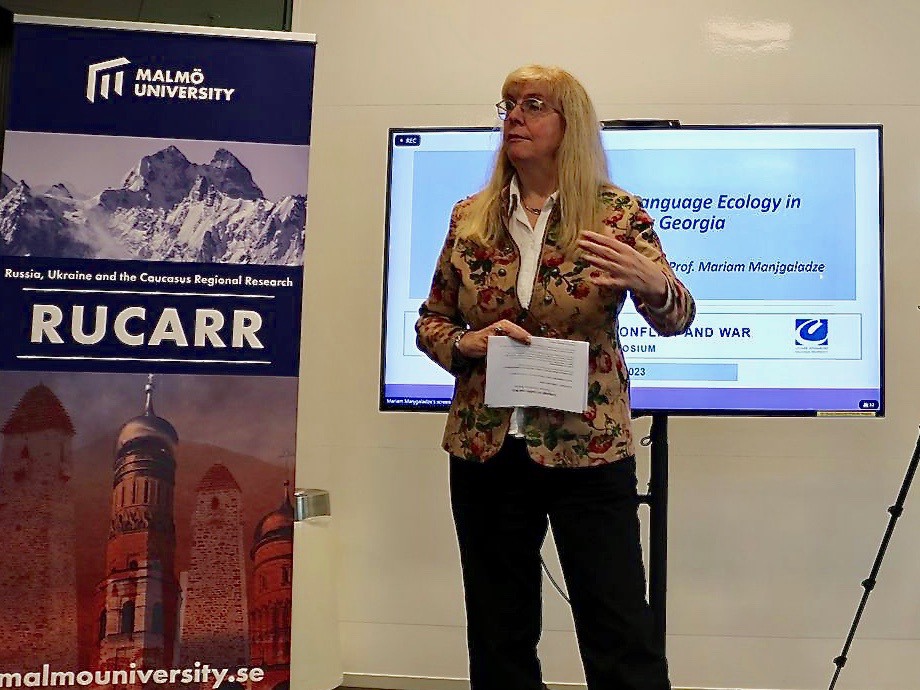
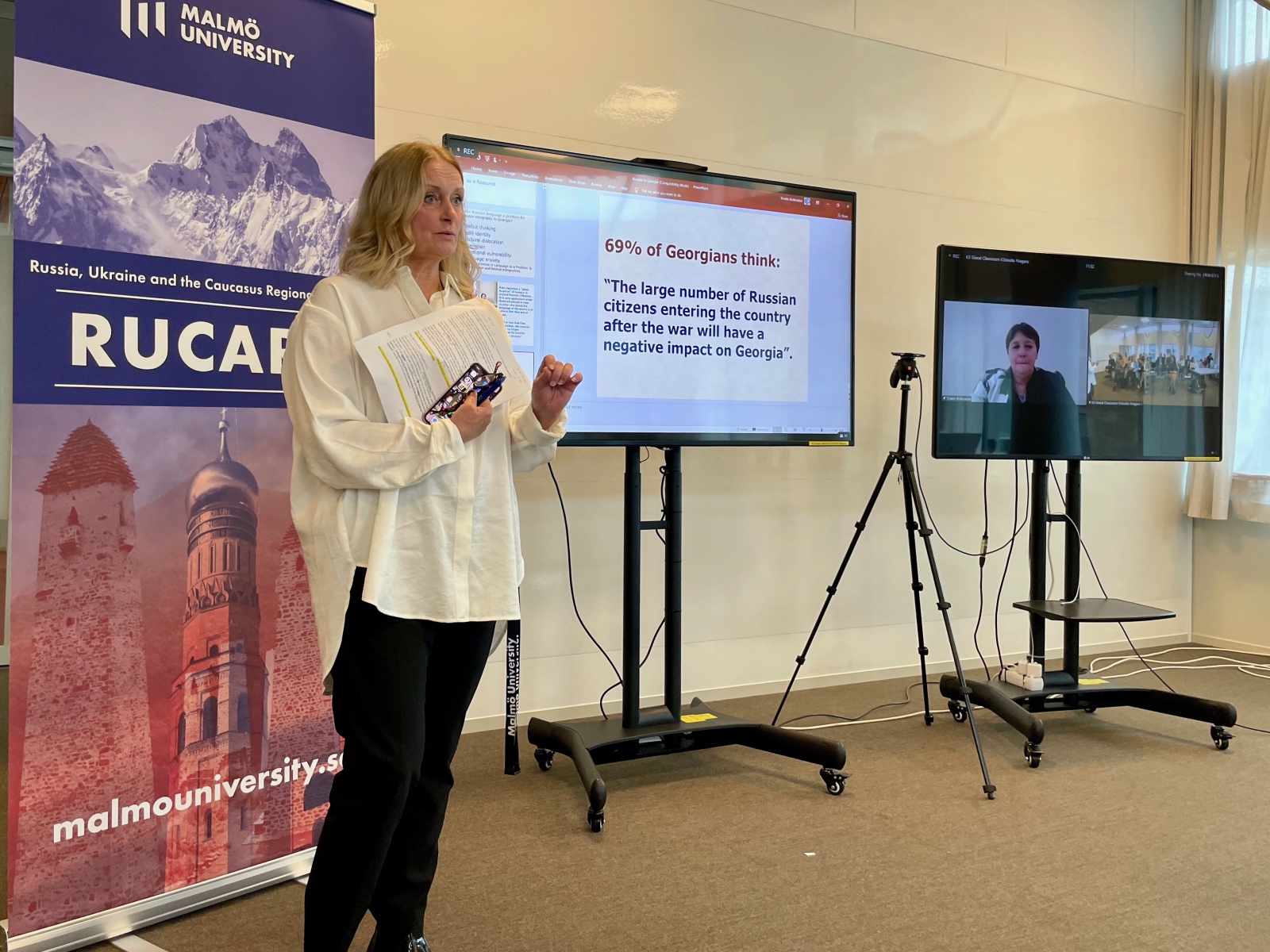

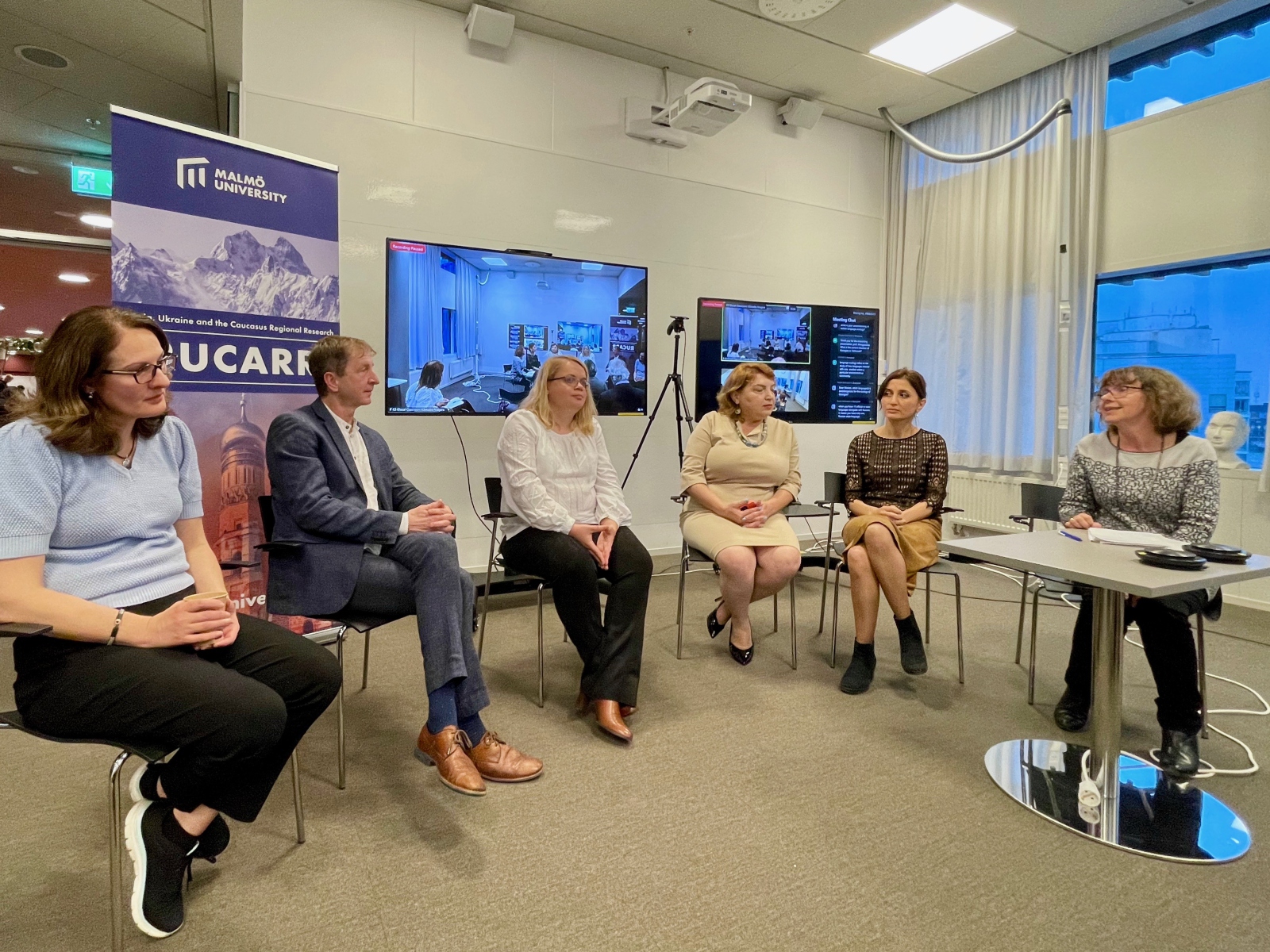
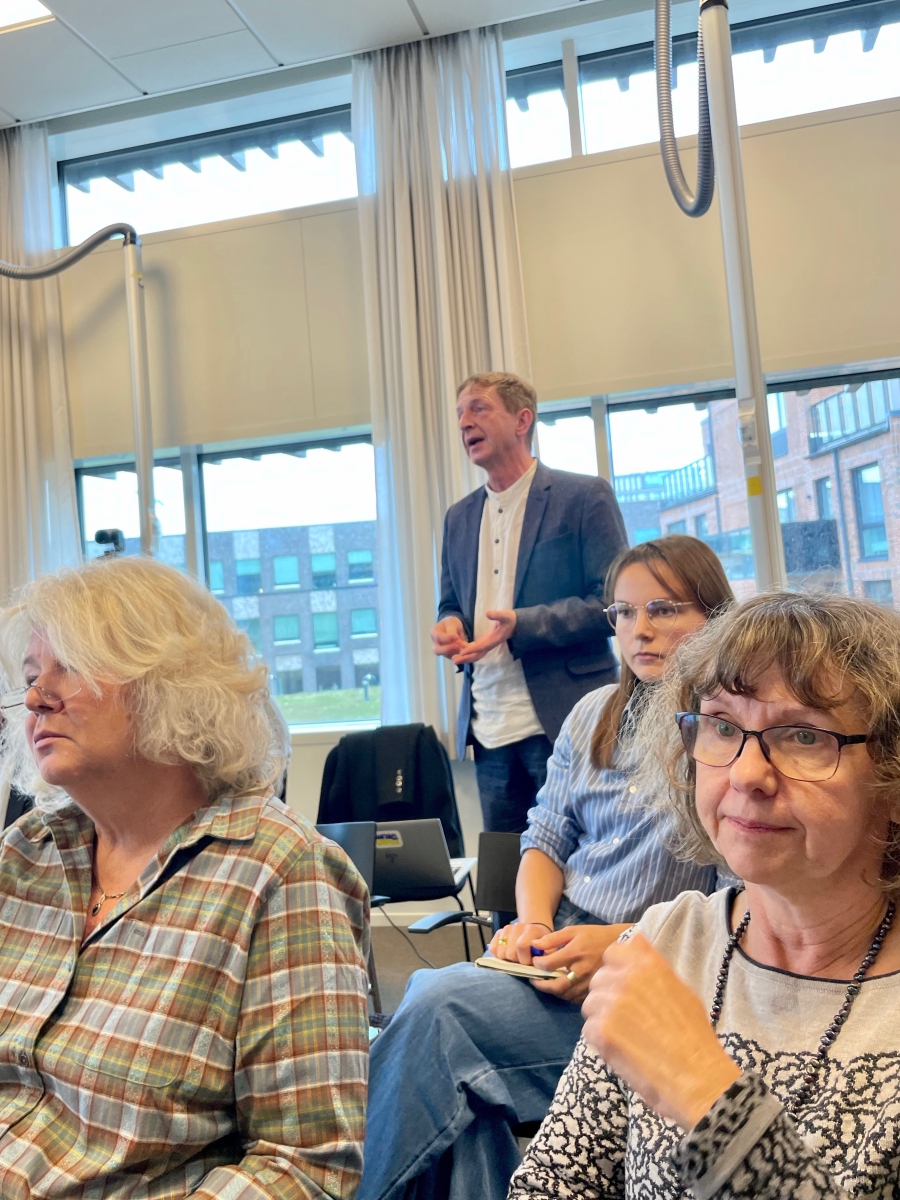
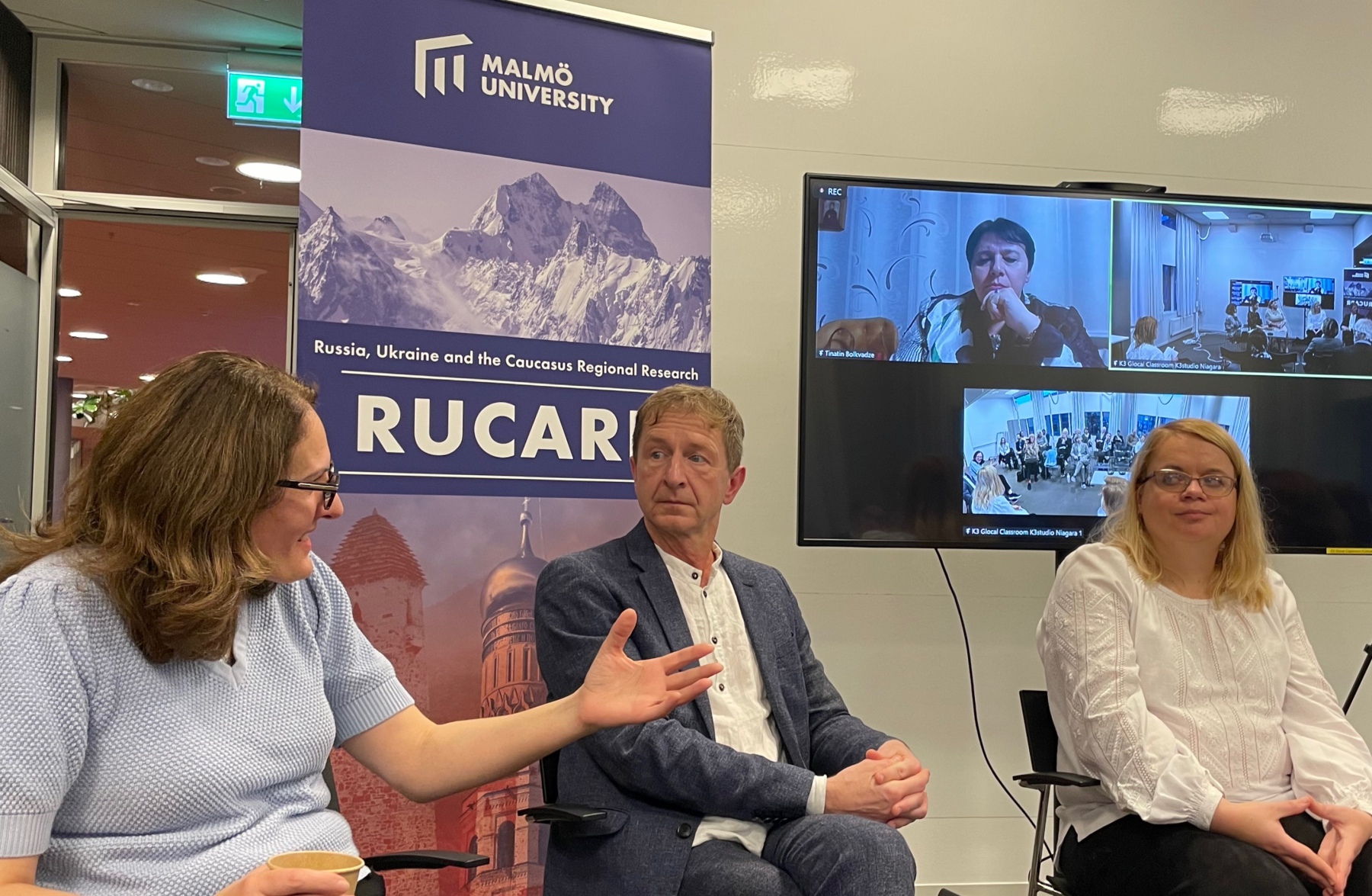

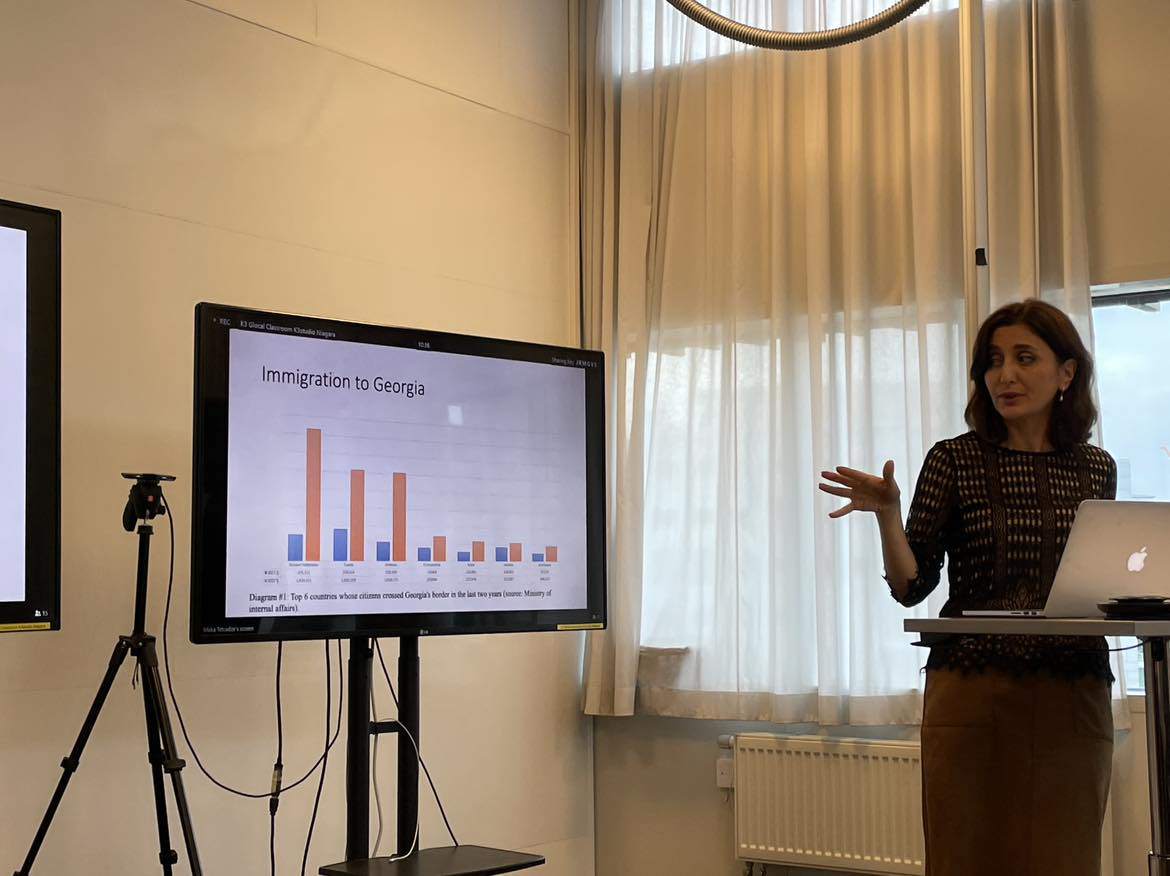

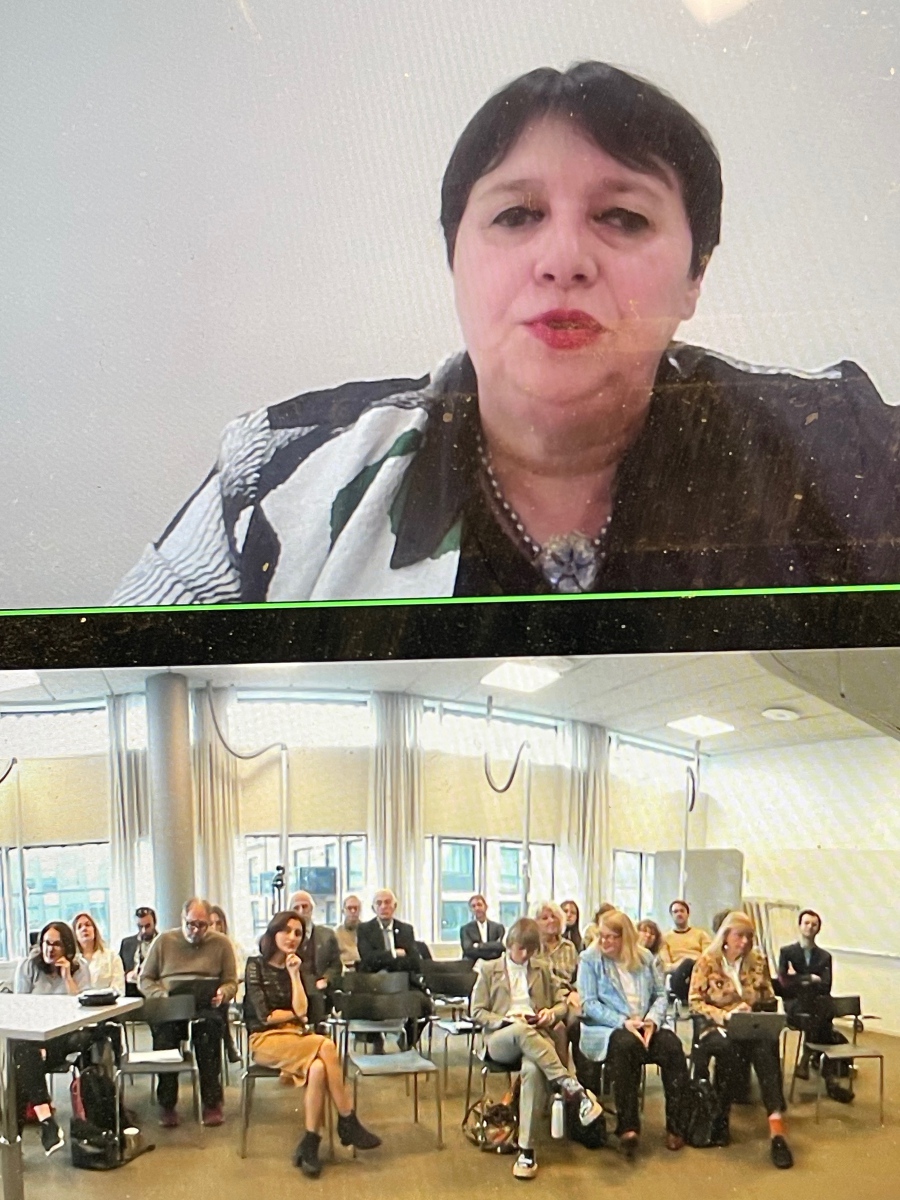
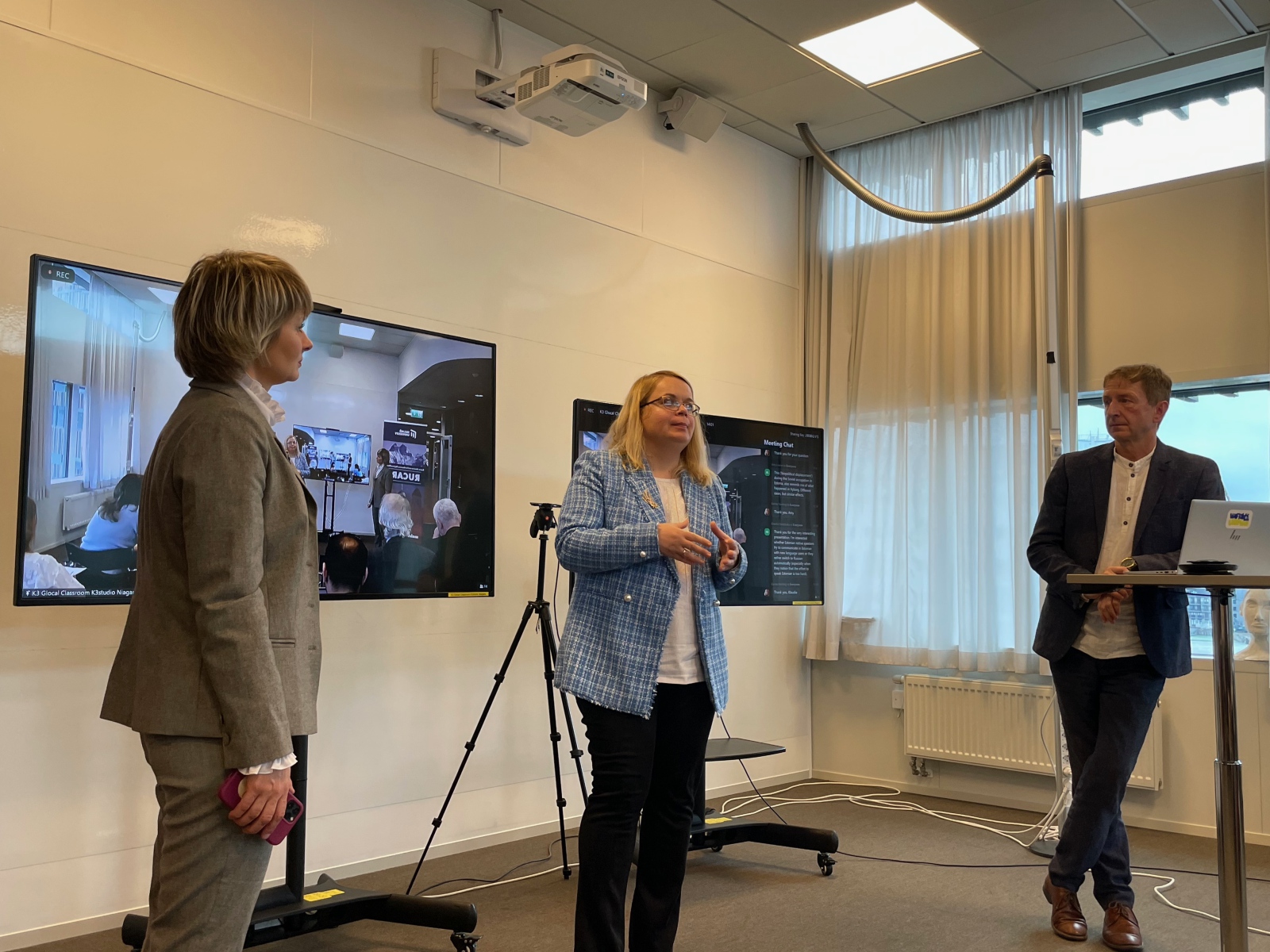
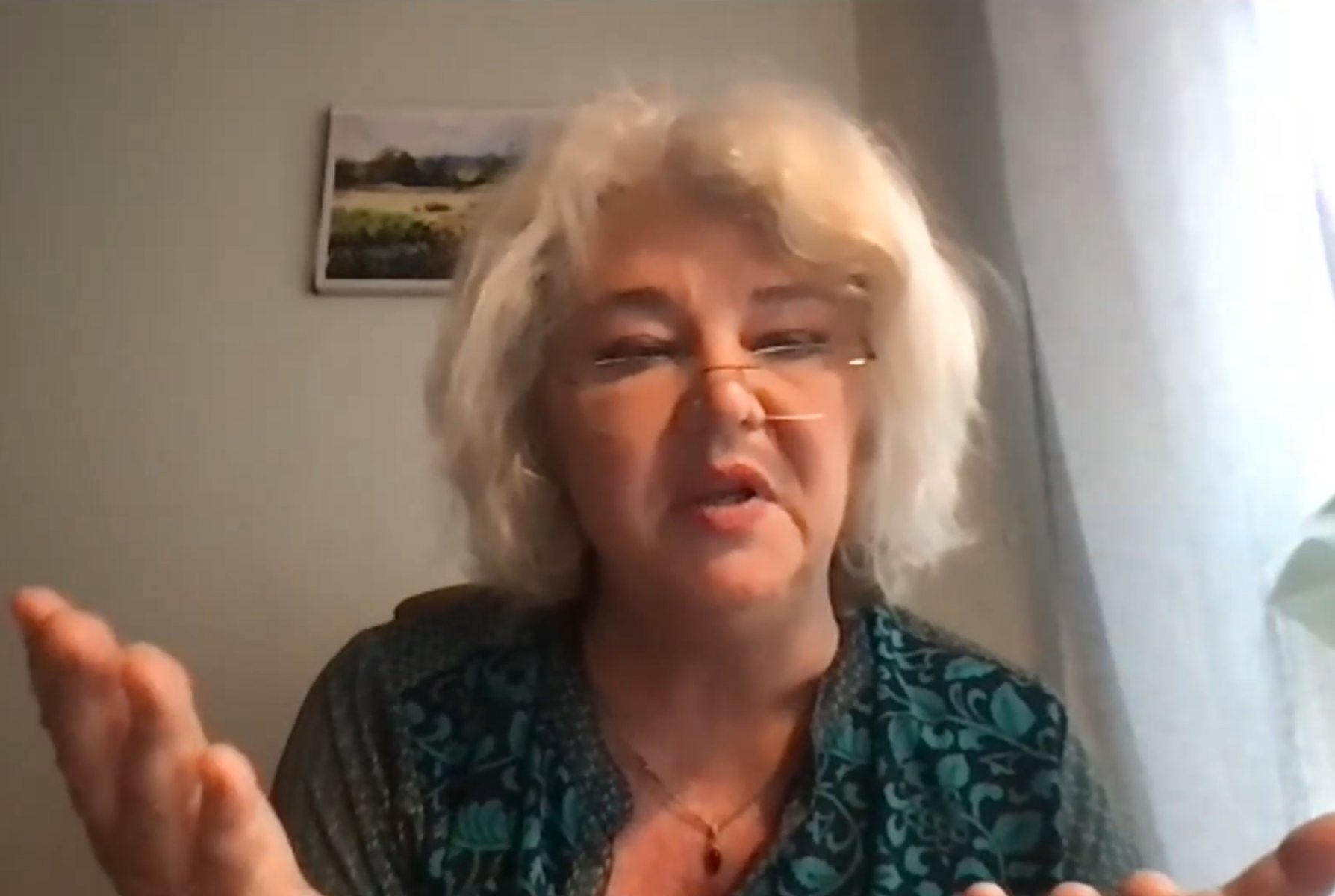
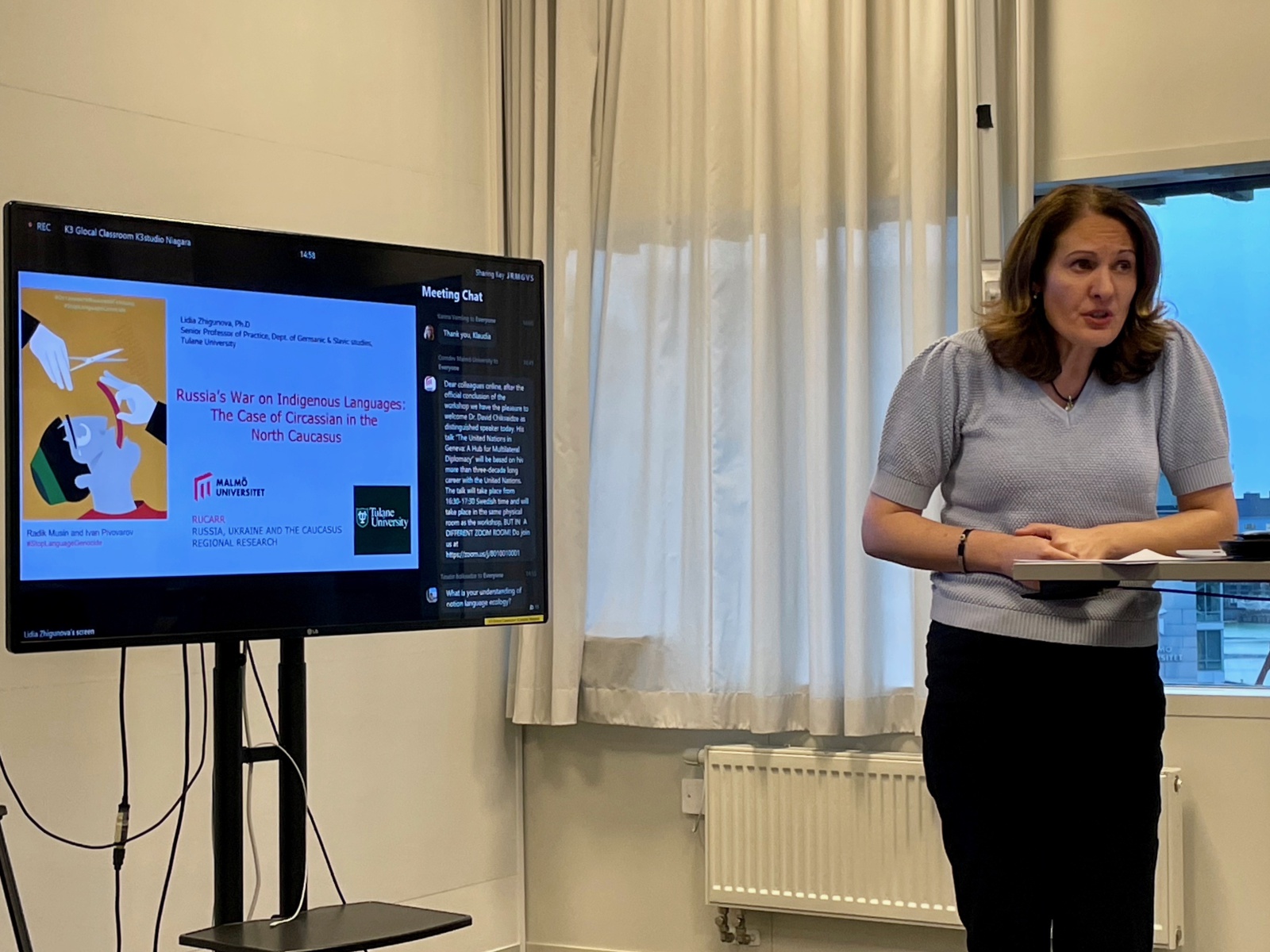

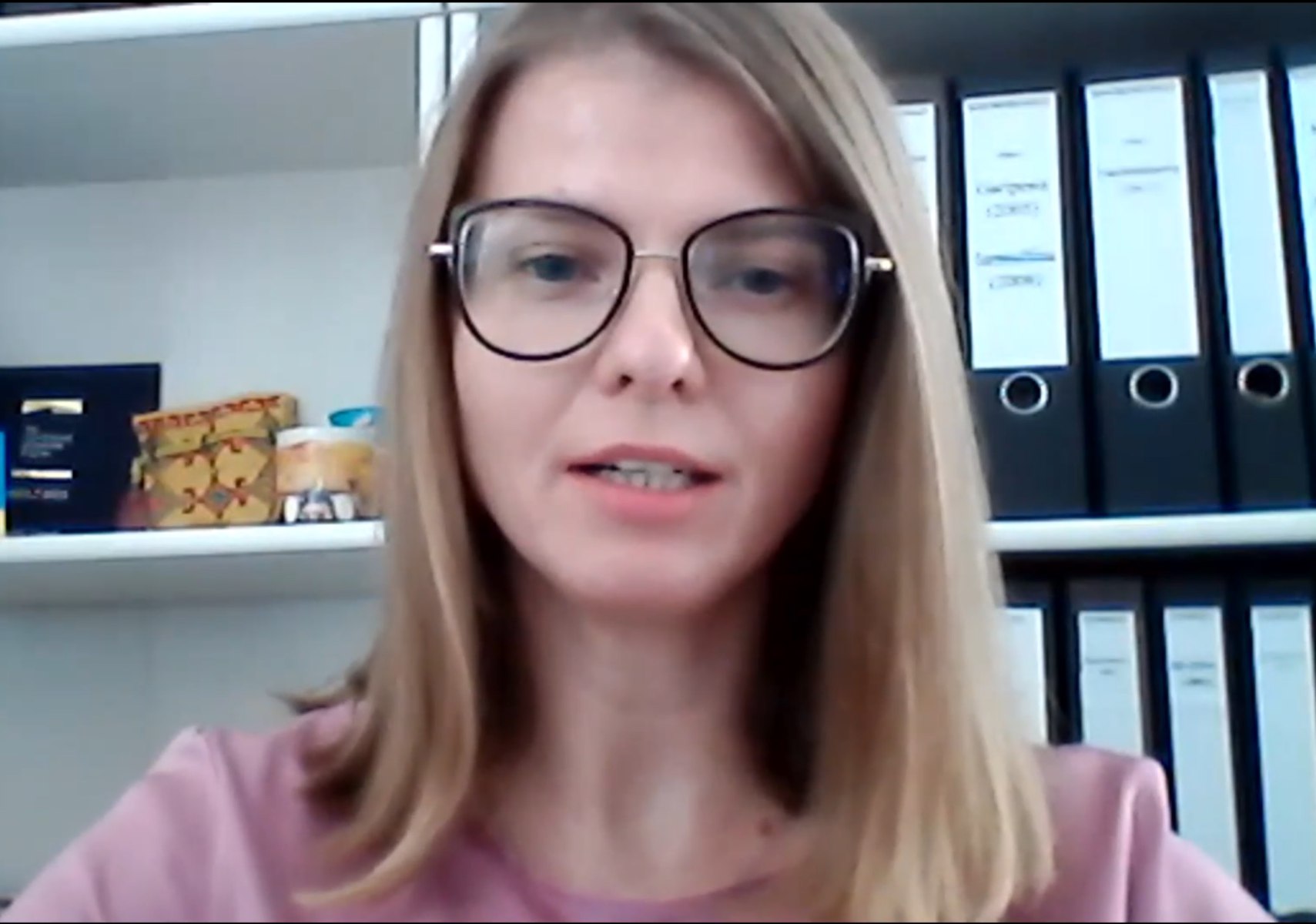

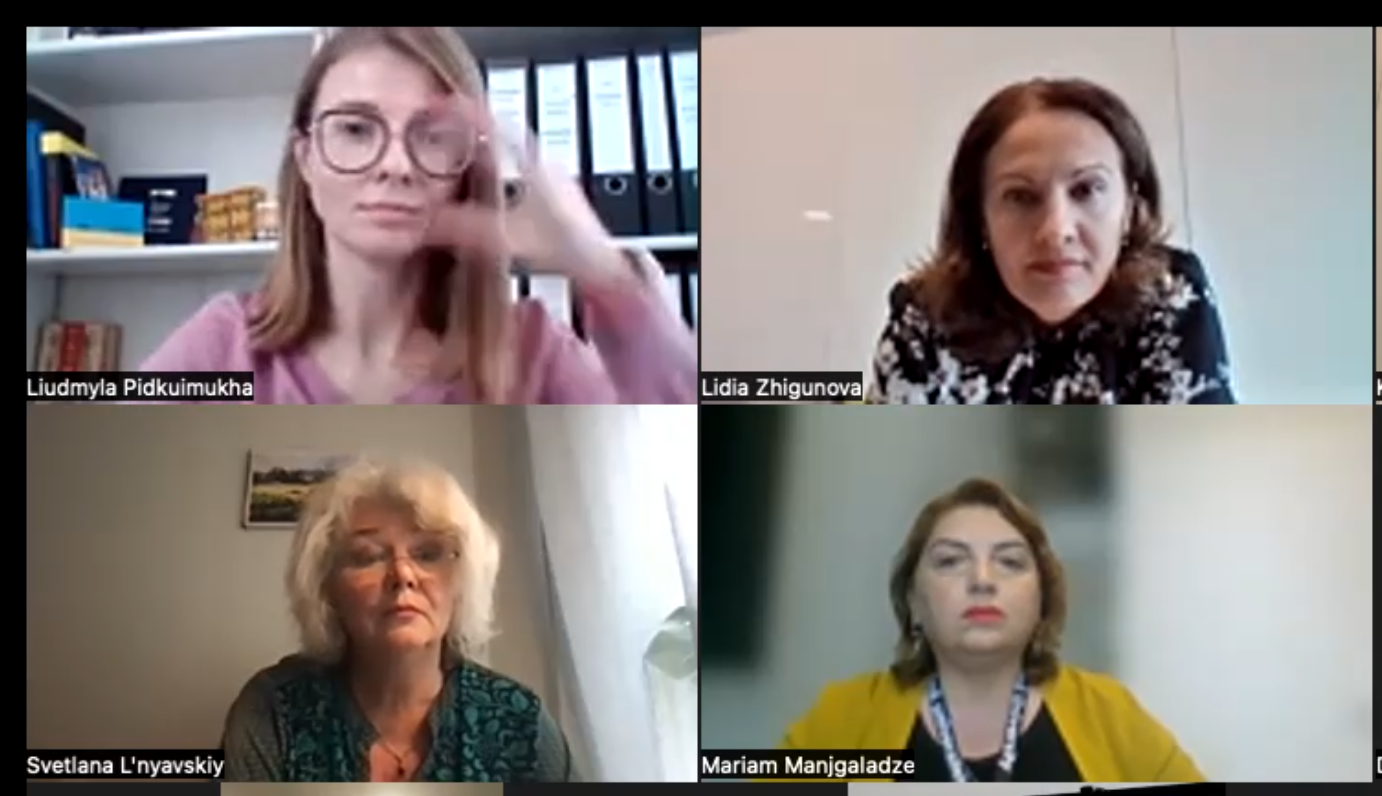
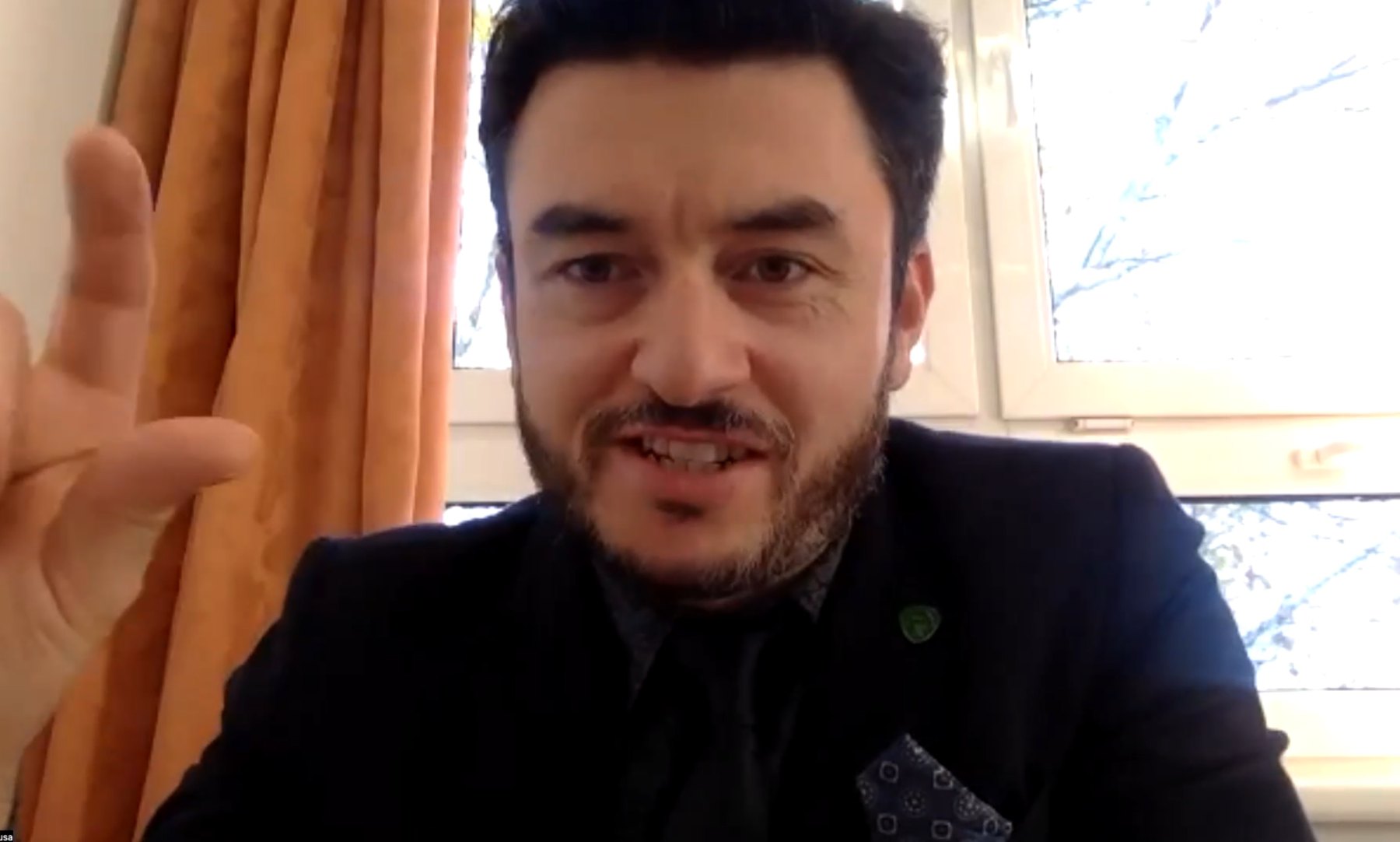
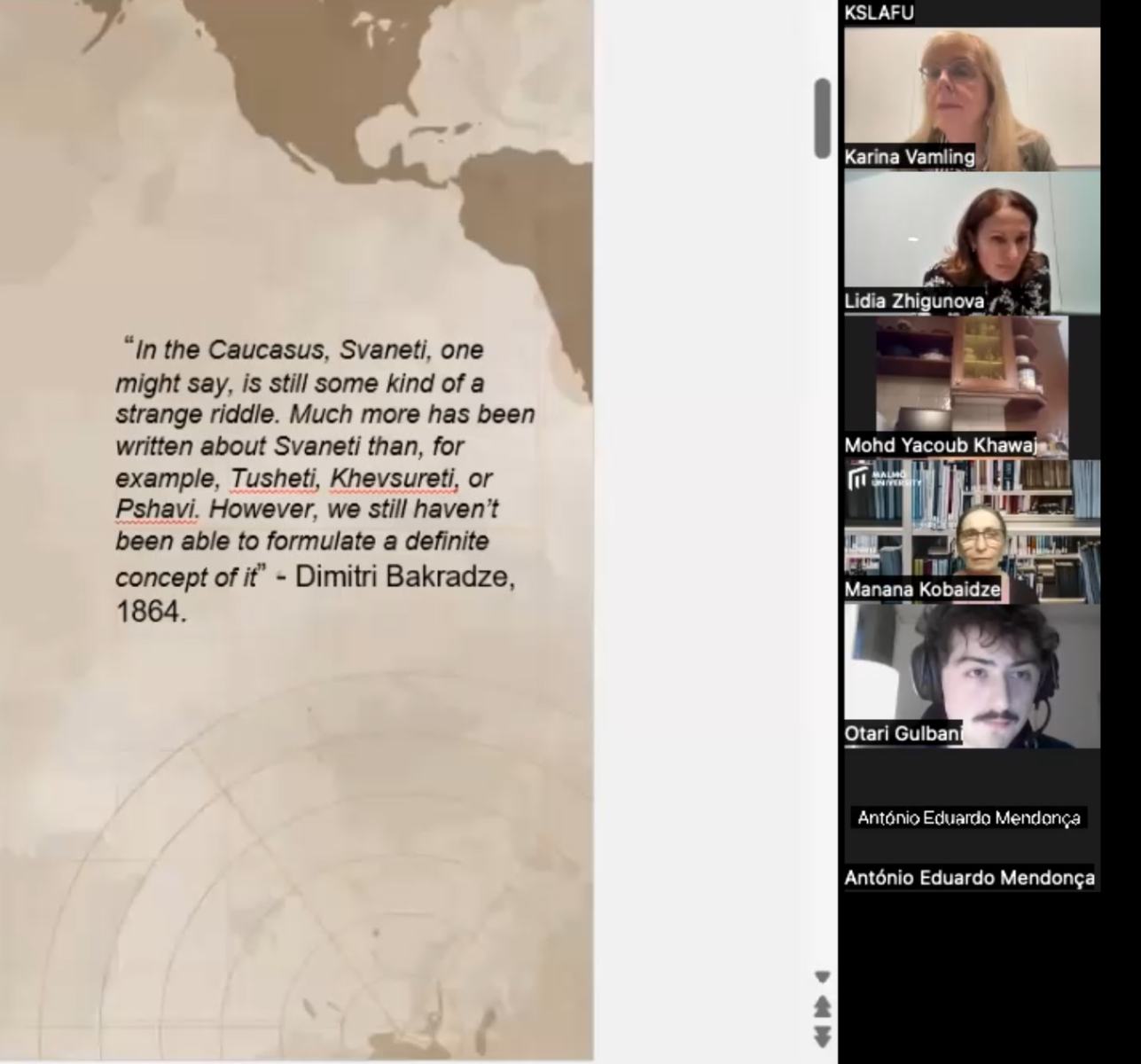
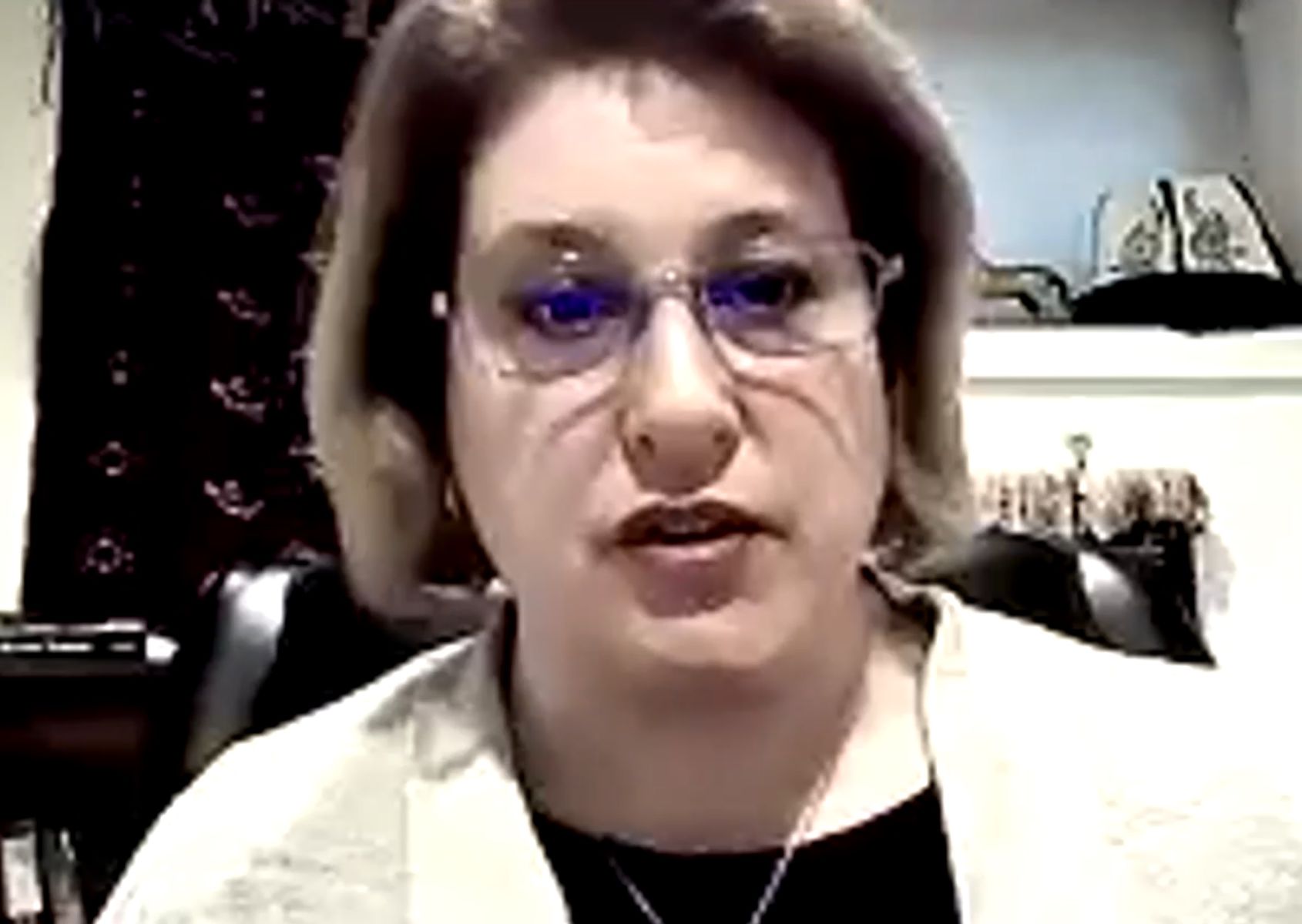
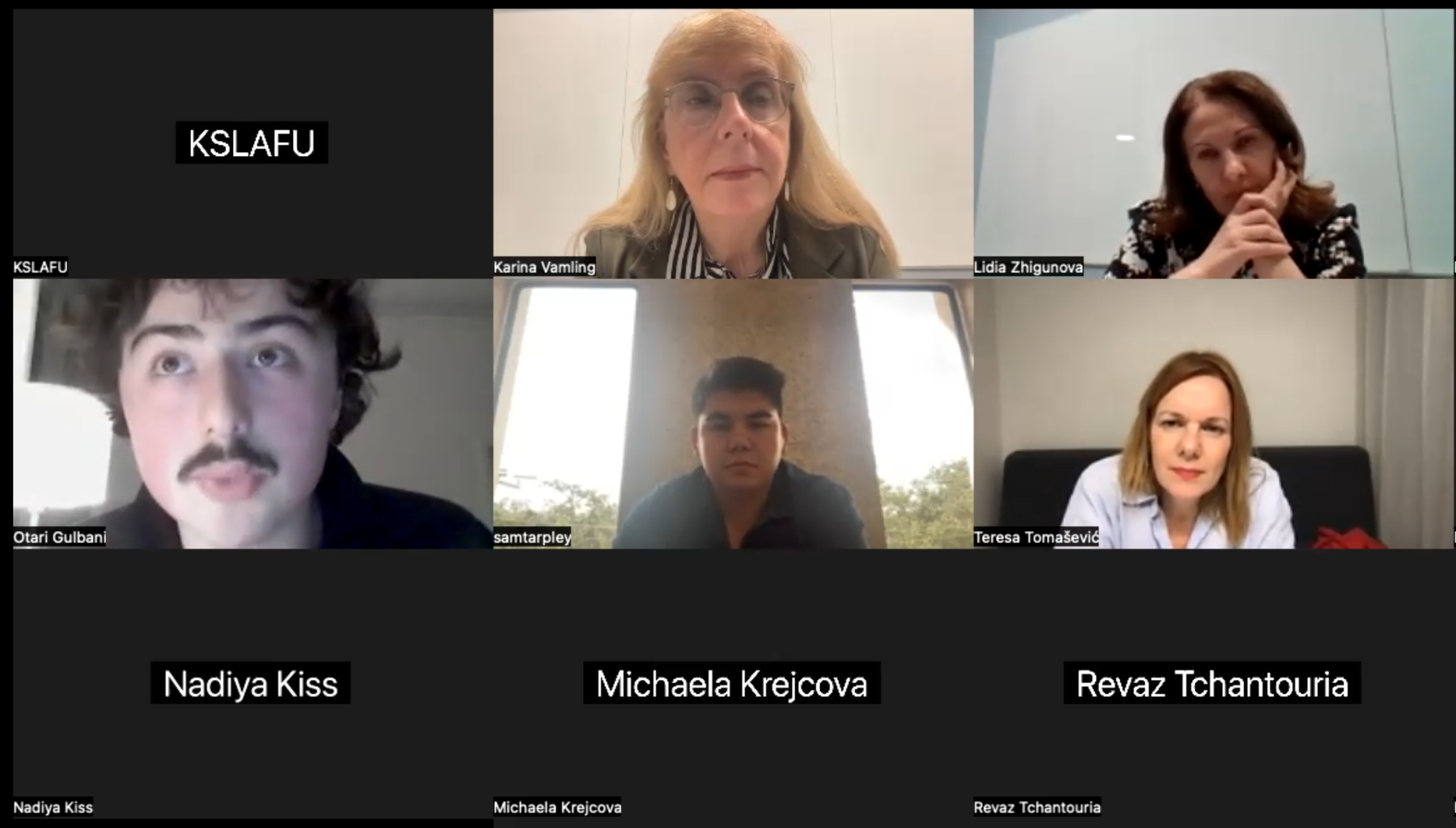
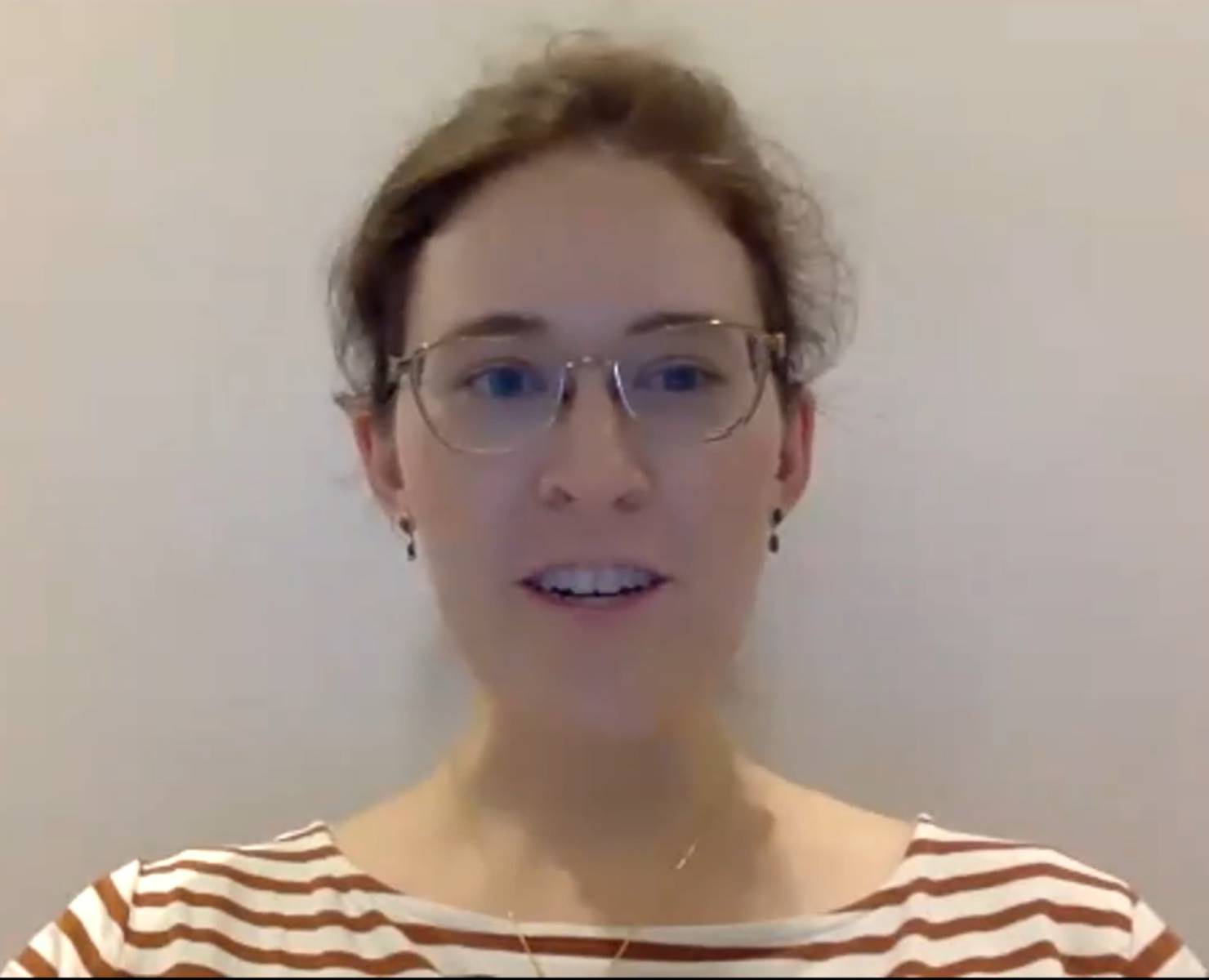
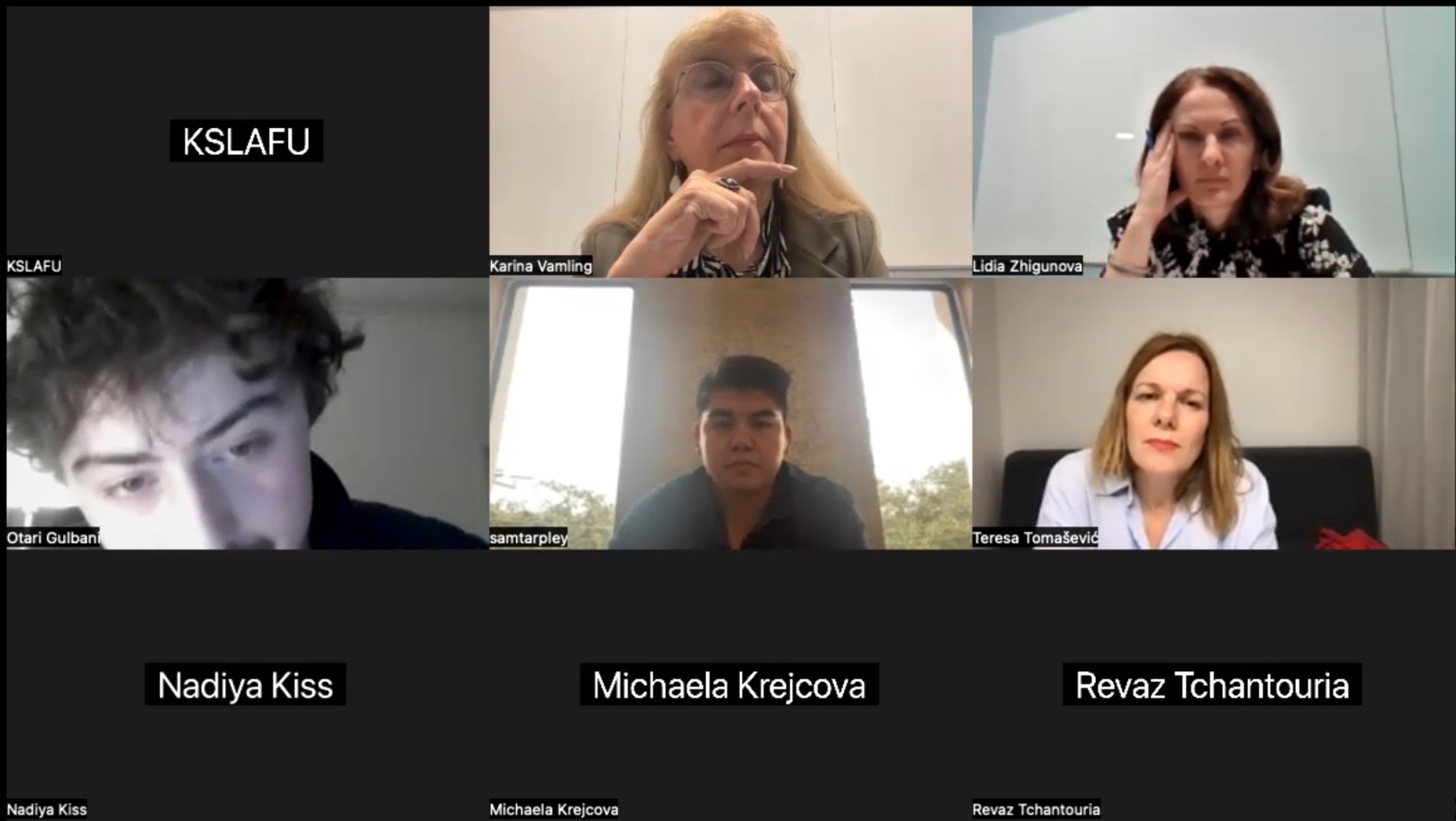

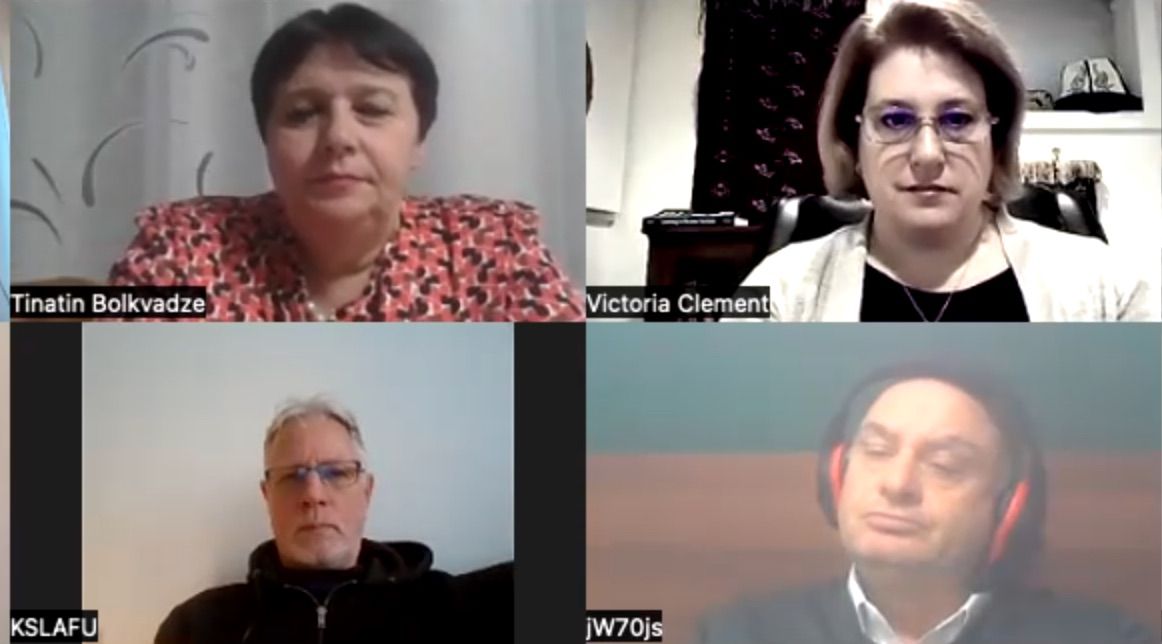
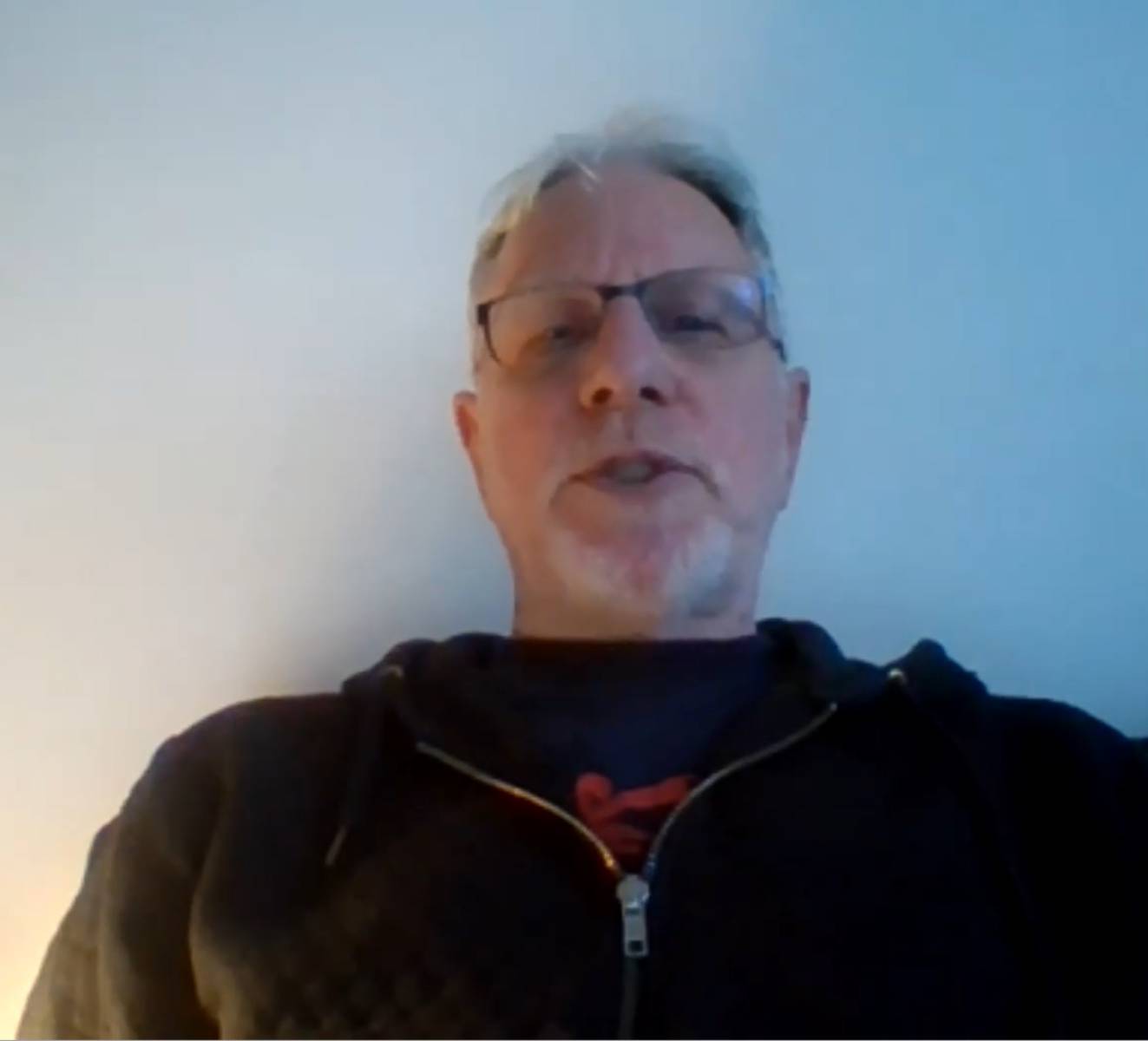
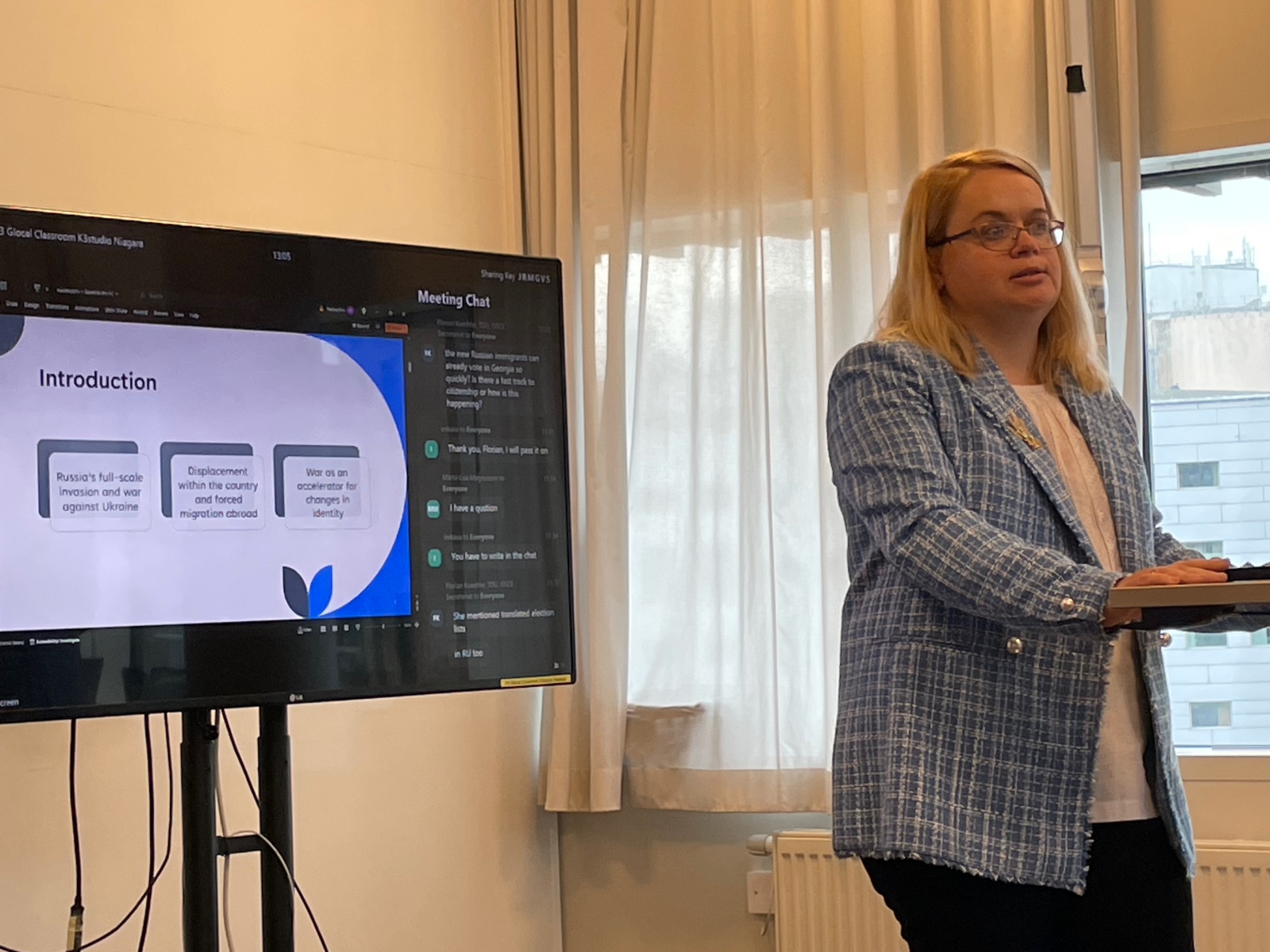
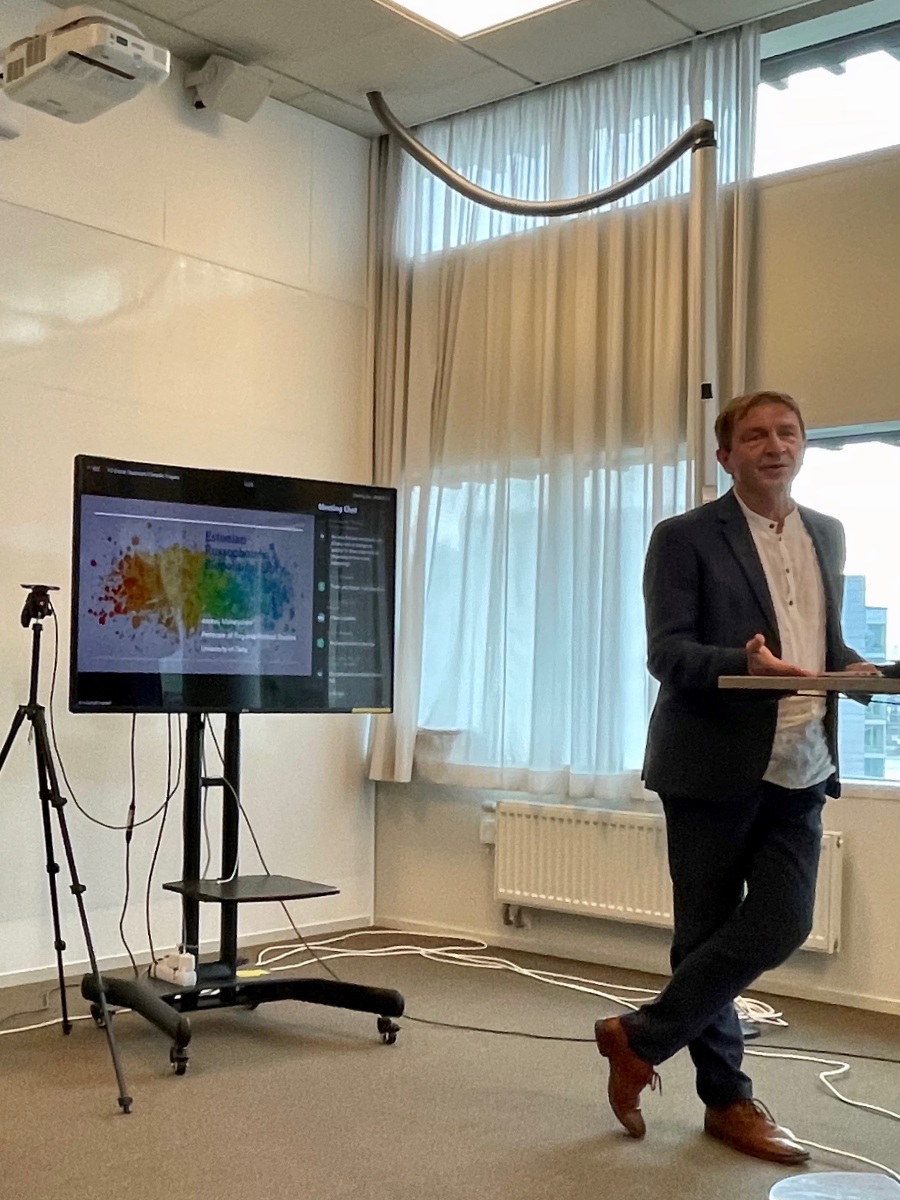

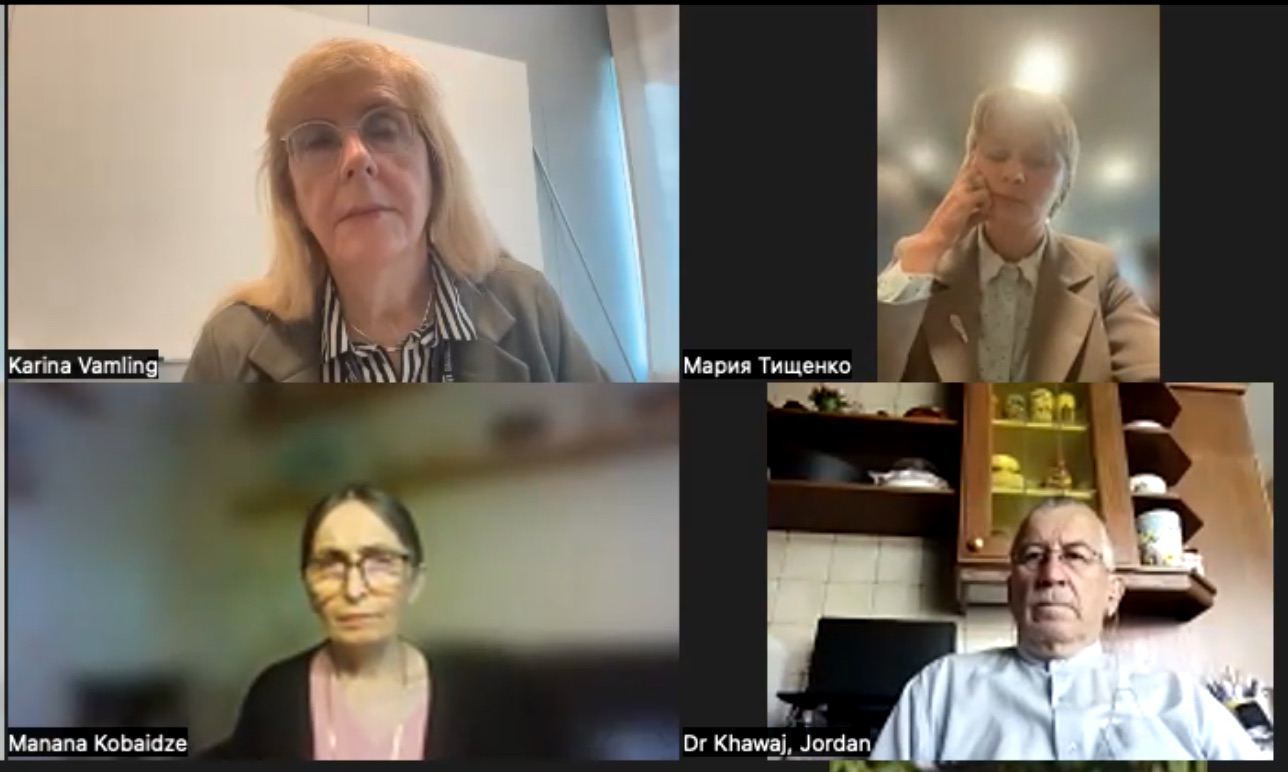

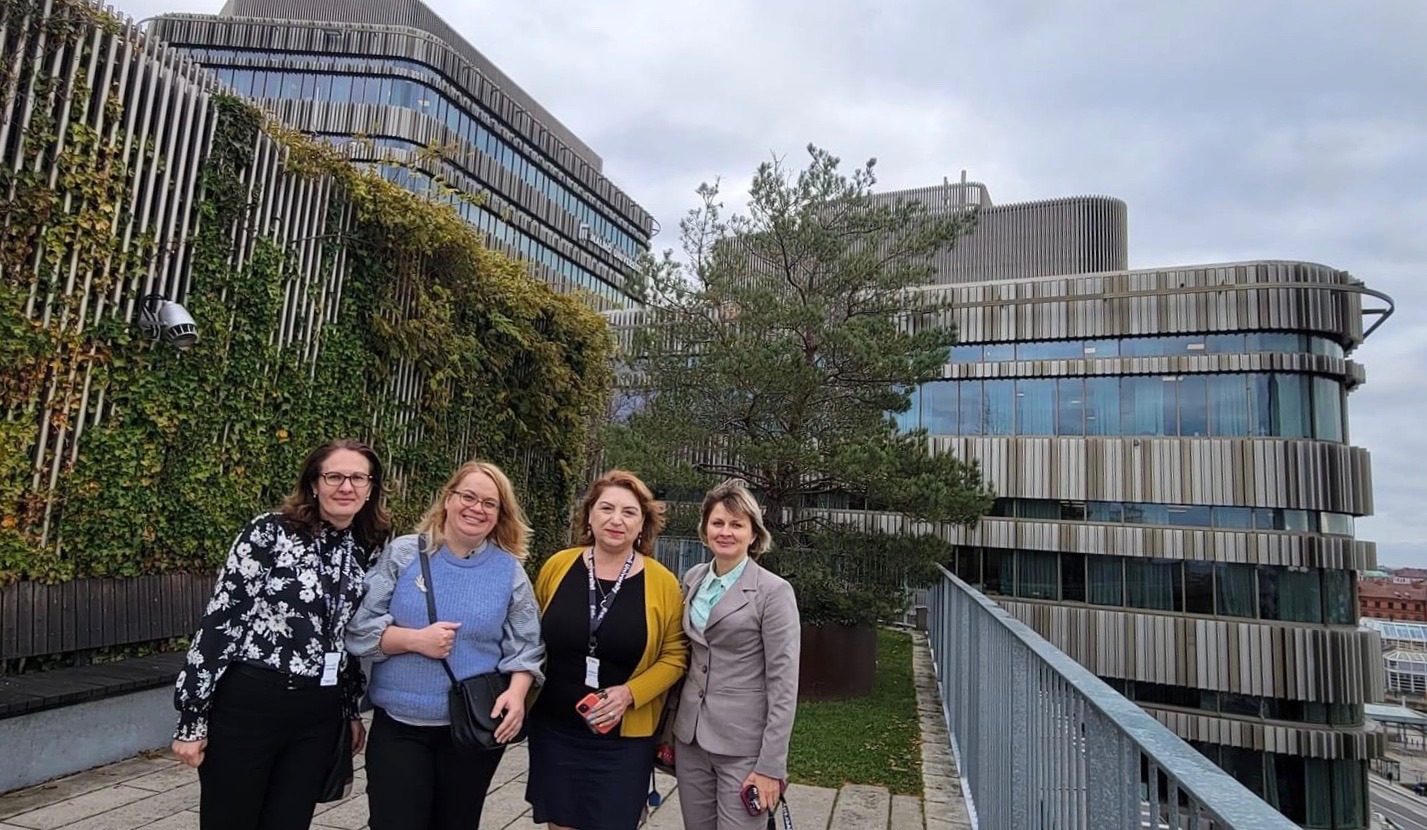
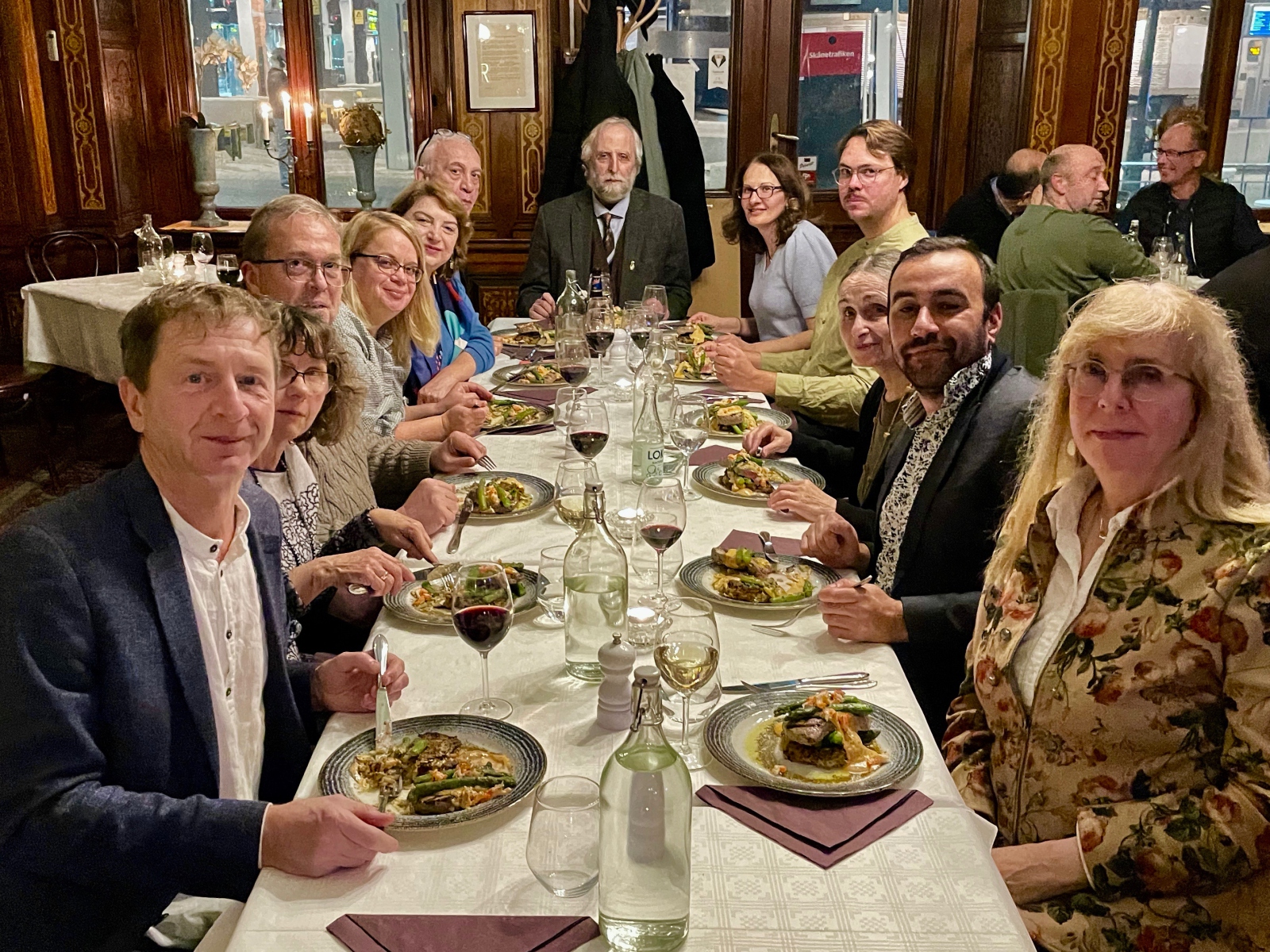
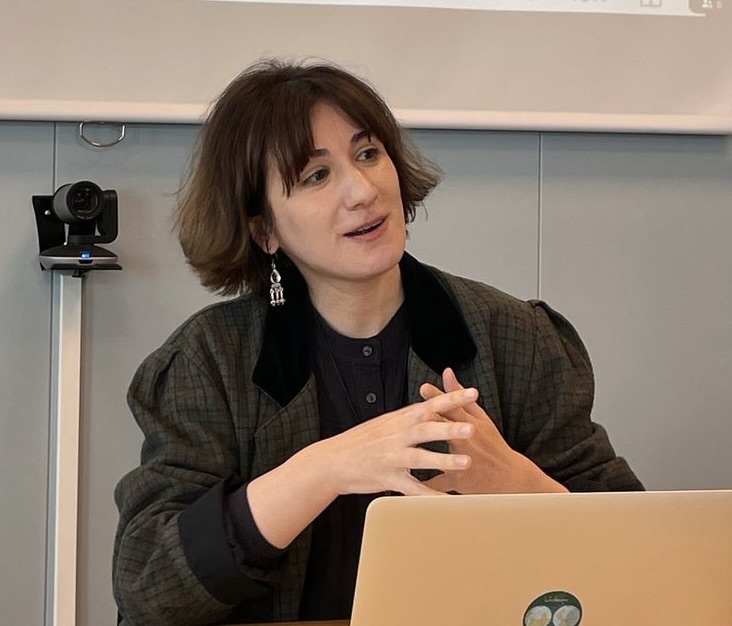 The post-Soviet wars and socio-economic crisis of the 1990s in Georgia and the North Caucasus shaped the lives of Pankisi residents, transforming the borderland region into the epicenter of tension. While Pankisi residents have kept a distinct Kist identity in Georgia, they have also maintained their ties with their Northern neighbours, and political developments in Chechnya and Ingushetia have often had a significant impact on their lives. The transition of North-Eastern Georgian borders from open to closed after the collapse of the Soviet Union unfolded in a specific way in Pankisi Gorge. This shift in border regimes coincided with the Russo-Chechen war. These events played a pivotal role in shaping their ethnic and religious identities and became an integral part of the collective memory of Pankisi Kists. It is against the backdrop of the Russo-Chechen wars and Georgia’s western-oriented geopolitical aspirations that I seek to understand the „valley of misconstrued“ by examining the formation of borderland identity at this politically and socially pivotal juncture.
The post-Soviet wars and socio-economic crisis of the 1990s in Georgia and the North Caucasus shaped the lives of Pankisi residents, transforming the borderland region into the epicenter of tension. While Pankisi residents have kept a distinct Kist identity in Georgia, they have also maintained their ties with their Northern neighbours, and political developments in Chechnya and Ingushetia have often had a significant impact on their lives. The transition of North-Eastern Georgian borders from open to closed after the collapse of the Soviet Union unfolded in a specific way in Pankisi Gorge. This shift in border regimes coincided with the Russo-Chechen war. These events played a pivotal role in shaping their ethnic and religious identities and became an integral part of the collective memory of Pankisi Kists. It is against the backdrop of the Russo-Chechen wars and Georgia’s western-oriented geopolitical aspirations that I seek to understand the „valley of misconstrued“ by examining the formation of borderland identity at this politically and socially pivotal juncture.